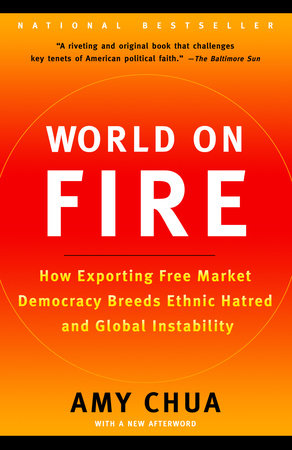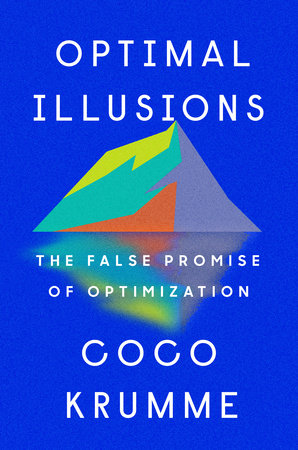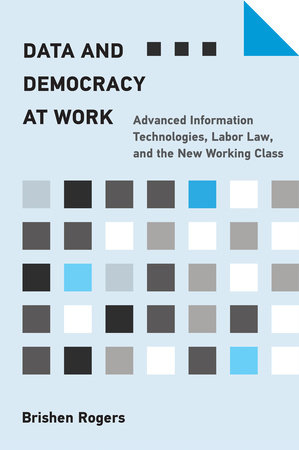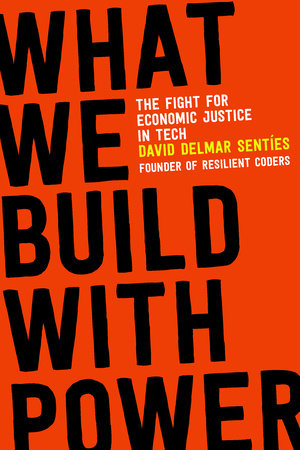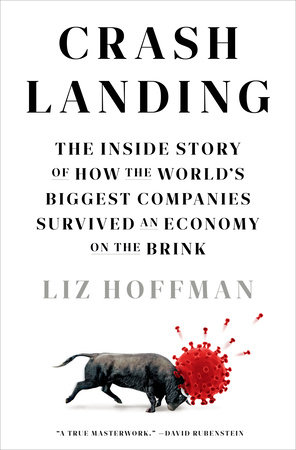Quick Summary
One Sentence Summary
“World on Fire” by Amy Chua dissects the complex interplay between globalization, democracy, and ethnic hatred, revealing the tensions that arise when markets and democracy collide in multi-ethnic societies.
Big Idea
Chua’s primary contention is that the spread of democracy and free markets across the world can exacerbate ethnic conflicts, especially in countries with a “market-dominant minority” – a phenomenon where a minority ethnic group controls a disproportionate share of wealth.
Five Key Ideas
- Market-Dominant Minorities: Explains how certain ethnic groups dominate economically in various countries, creating tension and conflict.
- Democratization Risks: Investigates the dangers that arise when democratization empowers the ethnic majority, leading to potential backlash against the wealthy minority.
- Globalization Effects: Explores how globalization can exacerbate these tensions by increasing the wealth gap and inflaming ethnic rivalries.
- Case Studies: Presents numerous examples from different parts of the world, from Asia to Africa, to illustrate her points.
- Policy Implications: Discusses the implications for U.S. foreign policy and offers suggestions on how to navigate these complex issues.
Actionable Advice
Understand the nuances of democratization and economic liberalization. Policy-makers should consider the ethnic compositions and historical tensions of nations when promoting democracy and free markets.
About the Author
Amy Chua is a professor at Yale Law School, known for her expertise in international business transactions, law, and development. She gained widespread recognition for her book “Battle Hymn of the Tiger Mother.”
Read Next
To explore related themes, consider reading:
- “The End of History and the Last Man” by Francis Fukuyama, for a perspective on democracy and its historical development.
- “The Clash of Civilizations and the Remaking of World Order” by Samuel P. Huntington, for insights into cultural and religious conflicts in a global context.
- “The Paradox of Plenty: Oil Booms and Petro-States” by Terry Lynn Karl, for an understanding of how resource wealth can affect nations and lead to conflict.
In Depth
Market-Dominant Minorities
The Concept and Its Impact
Market-dominant minorities are ethnic groups that, despite being numerically smaller, control a vast portion of a nation’s wealth. This dynamic creates a volatile social fabric, often leading to tension and conflict. In Amy Chua’s “World on Fire,” this concept is a cornerstone, illustrating how economic dominance by a minority can fuel resentment and violence in multi-ethnic societies.
A Striking Example: The Chinese in Southeast Asia
A powerful example Chua discusses is the Chinese minority in Southeast Asia. Despite making up a small percentage of the population, they control a significant portion of the region’s economy. This economic dominance has historically led to tensions and even violence, particularly during times of political upheaval.
For instance, in Indonesia, the Chinese minority, constituting about 3% of the population, has been known to control around 70% of the private economy. This disparity has not gone unnoticed. During the Asian financial crisis in the late 1990s, this economic gap led to brutal attacks on the Chinese community. As Chua notes:
“In Indonesia, where the Chinese minority (about 3 percent of the population) controls roughly three-quarters of the private economy, Chinese homes and businesses were looted and burned to the ground, and hundreds of Chinese women were brutally gang-raped, in riots that led to the ouster of President Suharto in 1998.”
This example is a stark reminder of how economic imbalances within ethnic groups can lead to horrifying outcomes, especially when combined with political instability.
Personal Reflections
Reflecting on Chua’s analysis, I recall my travels through Southeast Asia. In conversations with locals, the economic influence of the Chinese community was often a topic. While many admired their entrepreneurial spirit, there were also undercurrents of resentment and envy. Chua’s book helped me understand these complex dynamics in greater depth, making sense of the sentiments I encountered.
In my own country, similar dynamics exist, albeit with different groups. The idea of market-dominant minorities isn’t limited to one region; it’s a global phenomenon with local variations. Witnessing the repercussions of such imbalances in various forms, from subtle discrimination to overt hostility, has made Chua’s insights particularly resonant.
Broader Implications
Chua’s concept of market-dominant minorities isn’t just an academic theory; it’s a lens through which we can understand global conflicts and tensions. It challenges the notion that free markets and democracy are one-size-fits-all solutions. Instead, it urges a nuanced understanding of ethnic and economic landscapes before implementing sweeping changes.
In summary, the idea of market-dominant minorities sheds light on the complexities of ethnic tensions in a globalized world. The case of the Chinese in Southeast Asia is a poignant example, underscoring the need for thoughtful and culturally sensitive approaches to democracy and market liberalization.
Democratization Risks
Unintended Consequences
Democratization, though hailed as a beacon of freedom, can have unintended and dangerous consequences in ethnically diverse nations. Chua argues that in countries with market-dominant minorities, the introduction of democracy can fuel ethnic hatred and violence.
A Harrowing Example: Rwanda
Rwanda’s tragedy in the 1990s serves as a chilling illustration. The Tutsi minority, despite being numerically inferior, held significant economic power over the Hutu majority. The push towards democratization and the subsequent power shift to the Hutu majority led to catastrophic results.
Chua details this horror:
“In Rwanda, the Tutsi minority (about 14 percent of the population), who had controlled the country for centuries, lost power in a democratic revolution in 1959. The Hutus, once in power, subjected the Tutsi to periodic massacres until finally in 1994, Hutu extremists launched a campaign of genocide that took the lives of nearly a million Tutsi.”
This quote underscores the brutal reality of how democratization, without considering ethnic power dynamics, can lead to unspeakable violence.
Personal Observations
Reflecting on Rwanda, it’s hard not to feel a deep sense of sorrow for the consequences of misguided policies. In my own experiences, I’ve seen how sudden shifts in political power, without careful consideration of ethnic relations, can lead to unrest. Even in democratic societies, the backlash against economic disparities can manifest in less extreme but still troubling ways.
Chua’s insights on Rwanda made me ponder the fragile balance that must be maintained in multi-ethnic societies. It’s a stark reminder that democracy, while inherently valuable, isn’t a magic solution and can sometimes inflame existing tensions if not carefully implemented.
Wider Perspective
Democratization risks, as Chua presents, force us to rethink how we promote and implement democratic ideals worldwide. It’s a call to understand the fabric of each society, its history, and its ethnic composition before advocating for sweeping changes.
In summary, democratization, especially in countries with market-dominant minorities, is fraught with risks. Rwanda’s tragic experience is a testament to the catastrophic consequences that can ensue. It’s a compelling case for a more nuanced and context-sensitive approach to spreading democratic ideals.
Globalization Effects
Exacerbating Tensions
Globalization, while heralded for its economic benefits, can amplify ethnic conflicts, especially in societies with market-dominant minorities. Chua delves into how the forces of globalization can widen the wealth gap and intensify existing ethnic divisions.
Latin America’s Struggle
Latin America provides a poignant case study. The region’s indigenous populations, often economically marginalized, have witnessed the globalization-fueled rise of their countries’ market-dominant minorities, leading to heightened tensions.
In Chua’s words:
“In Latin America, where Spanish and Portuguese descendants and, increasingly, people of pure European descent, have long dominated the economy, indigenous movements are gaining ground as a backlash against the perceived inequalities brought about by globalization.”
This quote highlights the growing unrest and the complex interplay between globalization and ethnic dynamics in Latin America.
Personal Insights
Seeing the impact of globalization in my own surroundings, I’ve noticed the widening economic disparities. Chua’s examination of Latin America echoes the discontent I’ve seen among those feeling left behind by global economic trends.
Her analysis has made me more aware of the undercurrents of resentment that can arise when a small segment of the population reaps the majority of globalization’s benefits. It’s a global issue, seen in different forms across continents.
Broader Implications
The effects of globalization, as explored by Chua, demand a reassessment of how we perceive and manage global economic integration. It’s not just about trade and finance; it’s also about the delicate balance of ethnic relations and the distribution of wealth.
In summary, globalization’s impact on ethnic tensions is profound, especially in countries with market-dominant minorities. Latin America’s case underscores the need for careful, inclusive approaches to global economic policies.
Case Studies
Real-World Scenarios
Amy Chua uses various case studies to illustrate her points, grounding her theory in real-world scenarios. These examples span across continents, showcasing the global relevance of her ideas.
Nigeria’s Ethnic and Economic Divide
One striking case is Nigeria. The country’s ethnic and religious divisions, combined with the presence of oil wealth, have led to severe tensions and conflicts. The Ibo, an ethnic group in Nigeria, have been economically dominant in many sectors, despite being a minority. This has fueled resentment among other ethnic groups.
Chua explains:
“In Nigeria, the Ibo, who are about 17 percent of the population, have been economically dominant and have accordingly been the targets of recurring massacres by members of the majority ethnic groups.”
This quote captures the gravity of the situation in Nigeria, where ethnic and economic divisions have had devastating consequences.
Personal Connections
The Nigerian example resonates with me, as it reflects broader patterns I’ve observed in various countries. Ethnic and economic disparities often go hand-in-hand, leading to deep-seated tensions and conflicts. Chua’s case studies, including Nigeria, have helped me understand these complex dynamics on a deeper level.
Wider Lessons
The case studies in “World on Fire” are not just isolated incidents; they are reflective of a broader pattern observed globally. Chua’s detailed examples serve as a warning and a guide, showing the potential pitfalls of ignoring the interplay between ethnicity, economics, and politics.
In summary, the case studies, including Nigeria’s ethnic and economic divide, provide concrete examples of Chua’s theory in action. They highlight the importance of considering ethnic dynamics in economic and political decisions.
Policy Implications
Navigating Complex Terrain
Amy Chua’s “World on Fire” extends beyond analysis to suggest implications for policy, especially for the United States. She argues that American foreign policy needs to be more attuned to the ethnic and economic complexities of the countries it engages with.
Missteps in the Philippines
A compelling example is the Philippines. The U.S., in its efforts to promote democracy, overlooked the ethnic and economic nuances of the country. The Chinese-Filipino minority, though only 1-2% of the population, controls a significant portion of the economy. Democratization efforts, without addressing this disparity, led to increased tensions.
Chua states:
“In the Philippines, where the tiny Chinese minority (about 1 percent of the population) controls as much as 60 percent of the private economy, the United States, in its well-intentioned efforts to democratize the country, inadvertently exacerbated ethnic tension.”
This quote highlights the unintended consequences of a one-size-fits-all approach to democratization.
Personal Reflections
This example made me think about the complexities of foreign policy. It’s a reminder that good intentions aren’t always enough; understanding the intricate social and economic fabrics of nations is crucial. The Philippines’ case shows how overlooking these aspects can lead to increased ethnic strife.
Global Considerations
Chua’s insights on policy implications urge a more nuanced and informed approach to international affairs. It’s a call for policymakers to delve deeper into the histories, cultures, and social structures of nations before implementing broad strategies.
In summary, the policy implications drawn from “World on Fire” emphasize the need for careful consideration of ethnic and economic realities in foreign policy. The example of the Philippines serves as a cautionary tale, highlighting the potential pitfalls of overlooking these critical factors.
More
Actionable Advice
-
Understand Local Dynamics: Before implementing policies, thoroughly study the ethnic and economic landscapes of the region.
-
Promote Inclusive Growth: Encourage economic policies that benefit all ethnic groups, not just the dominant ones.
-
Educate on Diversity: Foster awareness and education about ethnic diversity and its implications.
-
Support Conflict Resolution: Invest in programs that facilitate dialogue and conflict resolution among different ethnic groups.
-
Monitor Economic Disparities: Regularly assess and address growing economic inequalities between ethnic groups.
-
Customize Democracy Promotion: Tailor democracy-building efforts to fit the specific ethnic and economic context of each country.
-
Boost Minority Representation: Ensure that minorities have a voice in political and economic decision-making processes.
-
Encourage Ethical Business Practices: Promote corporate responsibility to prevent exploitation of ethnic tensions for economic gain.
-
Collaborate Internationally: Work with international organizations to address issues of ethnic tensions and market-dominant minorities.
-
Evaluate and Adapt: Continuously review and adjust policies to effectively manage the evolving dynamics of ethnicity and economics.
About the Author
Amy Chua is a renowned author, lawyer, and professor at Yale Law School. Born in 1962 in Illinois, she’s of Chinese-Filipino descent. Her upbringing in a traditional Chinese household in the Midwest significantly influenced her perspectives. Chua graduated from Harvard Law School and later worked in corporate law before transitioning to academia. She gained widespread recognition with her book “Battle Hymn of the Tiger Mother,” sparking global debates on parenting. Chua is also known for “Political Tribes: Group Instinct and the Fate of Nations,” exploring tribalism in politics. Her work often delves into the complexities of cultural identity, market dynamics, and globalism, reflecting her belief in understanding diverse viewpoints. Chua’s writings are not just academic; they’re deeply personal, drawing from her multicultural experiences. She advocates for open dialogue, critical examination of cultural norms, and the importance of adapting policies to local contexts.
Read These Next
You might like these similar books
- “The Clash of Civilizations and the Remaking of World Order” by Samuel P. Huntington
- “The End of History and the Last Man” by Francis Fukuyama
- “Identity: The Demand for Dignity and the Politics of Resentment” by Francis Fukuyama
- “The True Believer: Thoughts on the Nature of Mass Movements” by Eric Hoffer
- “Outliers: The Story of Success” by Malcolm Gladwell
FAQ
Q: What is the main theme of “World on Fire” by Amy Chua?
A: The book explores how free market democracy breeds ethnic hatred and global instability, especially in countries with market-dominant minorities.
Q: Does Amy Chua provide real-world examples in the book?
A: Yes, Chua uses examples from various countries, including Rwanda and the Philippines, to illustrate her points.
Q: What is a market-dominant minority, as mentioned in the book?
A: A market-dominant minority refers to an ethnic group that is numerically smaller but holds significant economic power in a country.
Q: Is “World on Fire” suitable for readers without a background in politics or economics?
A: Yes, Chua’s writing is accessible, making complex ideas understandable for a general audience.
Q: Does the book discuss solutions to the problems it presents?
A: Yes, while Chua outlines the issues, she also delves into potential strategies and policies to address them.
Q: What makes “World on Fire” different from other books on globalization?
A: Chua’s focus on the interplay between ethnicity, economics, and democracy offers a unique perspective not commonly found in other globalization discussions.

